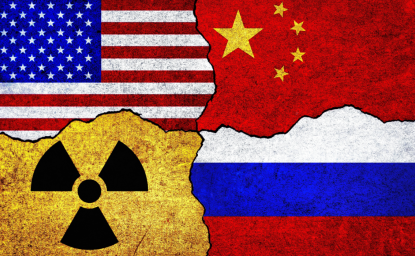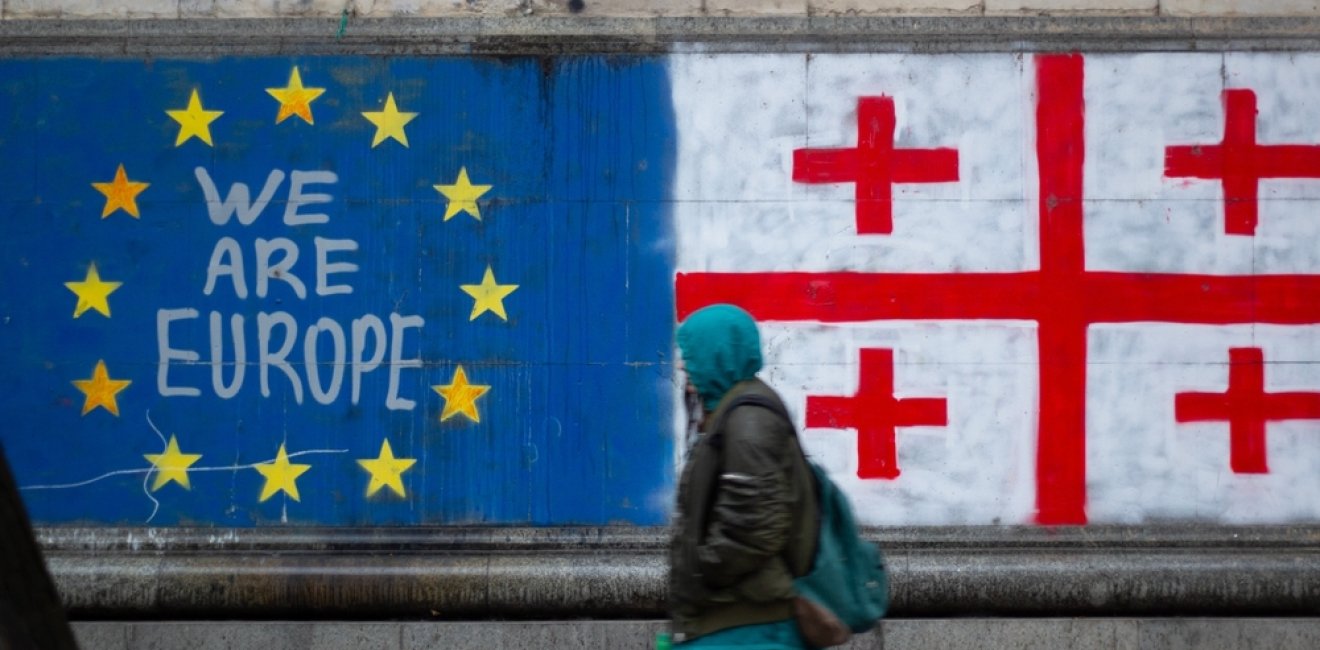More than two months have passed since the parliamentary elections were held in Georgia. For many in the country and abroad, the elections were a hope to end the long-standing political turbulence, authoritarian threats, and geopolitical shifts in Tbilisi. However, what followed was an escalation of tensions and further threats to Georgia’s hard-earned democracy, state institutions, and economy. Alongside these internal challenges, Georgia faces the potential destruction of its 30-year strategic partnerships with the United States and the European Union—a geopolitical course that has been the backbone of its statehood since it regained independence from the Soviet Union.
According to the OSCE/ODIHR, the parliamentary elections were marred by systemic violations that undermined the electoral process. These concerns were also raised by the opposition parties, the (at the time) President of Georgia Salome Zurabishvili, and the civil society, presenting dozens of clear examples of manipulation and breaches of voting secrecy. As a result, President Zurabishvili rejected the results of the elections, and all opposition parties refused to take seats in the new parliament.
The internal political crisis was further exacerbated when the new Prime Minister and leader of the Georgian Dream party announced the unilateral halting of EU accession negotiations. Despite Georgian Dream’s pre-election rhetoric, which aligned with Kremlin-backed anti-Western propaganda, the official suspension of European aspirations was a surprise to many. This move ignited massive pro-European demonstrations, which many have drawn parallels with Ukraine’s Maidan protests in 2013, when pro-Russian President Yanukovych suddenly halted the signing of the EU Association Agreement and shifted allegiance to Moscow. In response to these protests, the Georgian Dream resorted to brutal crackdowns. Riot police armed with tear gas and freezing water attacked protesters. In over a week of clashes, about 400 demonstrators were arrested, including journalists and civil society actors.
The reports and footage of use of violence against protesters quickly drew condemnation from European capitals and Washington, D.C. Countries like Estonia, Lithuania, and Latvia were among the first to impose sanctions on key officials in law enforcement involved in the crackdown on protesters, including travel and financial bans. Shortly afterward, the US Department of the Treasury’s Office of Foreign Assets Control (OFAC) imposed sanctions under the Magnitsky Act on Georgia’s Minister of Internal Affairs, Vakhtang Gomelauri, along with another Ministry official. as well as financial sanctions against Bidzina Ivanishvili, Georgia’s former Prime Minister and founder of the Georgian Dream.
The political crisis in Georgia, which began with the elections and escalated with the announcement of the suspension of European integration, further intensified in late December 2024. President Salome Zurabishvili, who led the only institution that remained legitimate at the time, was nearing the end of her term. According to new constitutional amendments, the next president was to be elected by an electoral college, including by members of a parliament that lacked legitimacy due to the disputed elections. This process risked deepening the political crisis, as the newly elected president would also face non-recognition. Georgian Dream refused calls from the international community for snap elections and de-escalation. Instead, the college elected Mikheil Kavelashvili, a former footballer known for his anti-Western and aggressive statements.
Why the West Could Lose Georgia
The current internal political crisis also showcases a geopolitical gambit in the region powered by Russia and China. Russia aims to expand its influence over the former Soviet geopolitical space, leveraging economic power and hybrid attacks. Despite its 2008 invasion, Moscow failed to influence Tbilisi’s Euro-Atlantic trajectory at the time. However, since Russia’s invasion of Ukraine in 2022, Georgia’s ruling party the Georgian Dream has reversed its course, by refusing to join sanctions against Russia, continuing to allow flights from Moscow, and embracing Russian war propaganda.
Furthermore, China’s interest in the South Caucasus, particularly in Georgia, has grown alongside the Belt and Road Initiative (BRI). In 2017, Georgia signed a free trade agreement (FTA) with China, becoming the first country in the region to do so. This facilitated increased trade, making China one of Georgia’s largest trading partners. In 2023, Tbilisi and Beijing elevated their relationship by announcing a strategic partnership, focusing on transportation, telecommunications, infrastructure modernization, and digital technologies. Prime Minister Irakli Kobakhidze also expressed support for China’s Global Security Initiative and Development Initiatives.
China’s growing interest has recently extended to the Anaklia Deep Sea Port, a strategic infrastructure gateway on Georgia’s Black Sea coast. Initially led by a consortium that included US-based Conti International, the project aimed to strengthen Georgia’s integration into global trade. However, in 2024, the Georgian government terminated contracts with the American consortium, citing unmet obligations, and invited a new Chinese consortium, led by companies subject to US sanctions. While Anaklia is strategically significant as a key transit hub in the Middle corridor, (also known as the Trans-Caspian International Transport Route), connecting Southeast Asia and China to Europe via Kazakhstan, Azerbaijan, Georgia and Turkey, it also provides China with leverage for its regional expansion.
Iran’s role in the region has also grown, as reflected in strengthening political ties. Last year, Georgian officials, including the Prime Minister Kobakhidze, attended a high-profile event in Tehran alongside leaders of Hezbollah and Hamas, signaling shifting priorities and closer ties with Moscow and Beijing. Alongside Russia, Iran is a member of the Moscow-initiated joint regional format “3+3”, which reflects the shifting regional power dynamics in the South Caucasus and efforts to counter Western influence in the region.
Meanwhile, protests across Georgia, now entering their 50th day, demonstrate a clear rejection of Georgian Dream’s attempts to establish a Kremlin-style authoritarian system. Protesters, supported by the 5th President of Georgia Salome Zurabishvili and opposition parties, demand new, free, and fair elections. While snap elections could offer a path out of the crisis, authoritarian powers are likely to resist, seeking to entrench their influence in Georgia.
The role of the EU and United States in safeguarding democracy and alliances in the South Caucasus region is pivotal. Having invested decades in building Georgia’s institutions, civil society, and national capacity, Brussels and Washington face a significant geopolitical hazard. Losing Georgia to the authoritarian axis would mark a major setback for the West in the South Caucasus region.
Author


Global Europe Program
The Global Europe Program is focused on Europe’s capabilities, and how it engages on critical global issues. We investigate European approaches to critical global issues. We examine Europe’s relations with Russia and Eurasia, China and the Indo-Pacific, the Middle East and Africa. Our initiatives include “Ukraine in Europe”—an examination of what it will take to make Ukraine’s European future a reality. But we also examine the role of NATO, the European Union and the OSCE, Europe’s energy security, transatlantic trade disputes, and challenges to democracy. The Global Europe Program’s staff, scholars-in-residence, and Global Fellows participate in seminars, policy study groups, and international conferences to provide analytical recommendations to policy makers and the media. Read more

Explore More
Browse Insights & Analysis
US Inaction Is Ceding the Global Nuclear Market to China and Russia

360° View of How Southeast Asia Can Attract More FDI in Chips and AI




